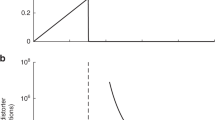Abstract
No one disputes the recent rise in agricultural production in the Soviet Union. Prof. E. Ashby, in a recent broadcast (Listener, March 30, 1950), has directed attention to it, and to the fact that productivity “has even approached the yields reported for similar climates in Western countries”. While, however, Dr. Marchlewski asserts that this is due to the application of “new biological theory” (presumably including new genetic theory), Ashby concludes that it was the result of the application of common sense and some very elementary practical measures, none of them involving genetics, to an extremely backward condition of agricultural practice. And he stresses that, to achieve this result, Lysenko was indispensable.
This is a preview of subscription content, access via your institution
Access options
Subscribe to this journal
Receive 51 print issues and online access
$199.00 per year
only $3.90 per issue
Buy this article
- Purchase on Springer Link
- Instant access to full article PDF
Prices may be subject to local taxes which are calculated during checkout
Similar content being viewed by others
Author information
Authors and Affiliations
Rights and permissions
About this article
Cite this article
HUXLEY, J. “Soviet Genetics: the Real Issue”. Nature 165, 731–732 (1950). https://doi.org/10.1038/165731c0
Issue Date:
DOI: https://doi.org/10.1038/165731c0
Comments
By submitting a comment you agree to abide by our Terms and Community Guidelines. If you find something abusive or that does not comply with our terms or guidelines please flag it as inappropriate.



